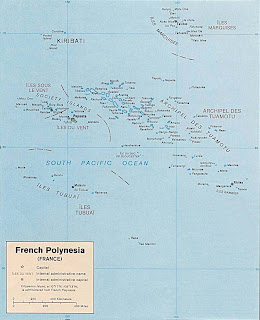Jean-Marie
Le Pen (born 20 June 1928) is a French far right-wing and nationalist
politician who is founder and former president of the Front National (National
Front) party. Le Pen has run for the French presidency five times, most notably
in 2002, when in a surprise upset he came second, polling more votes in the
first round than the main left candidate, Lionel Jospin. Le Pen lost in the
second round to Jacques Chirac. Le Pen again ran in the 2007 French
presidential election and finished fourth. His 2007 campaign, at the age of 78
years and 9 months, makes him the oldest candidate for presidential office in
French history.
Le
Pen focuses on immigration to France, the European Union, traditional culture,
law and order and France's high rate of unemployment. He advocates immigration
restrictions, the death penalty, raising incentives for homemakers, and
euroscepticism. He strongly opposes same-sex marriage, euthanasia, and
abortion.
Personal Life and Early
Career
Le
Pen was born in La Trinité-sur-Mer, a small seaside village in Brittany, the
son of a fisherman but then orphaned as an adolescent (pupille de la nation,
brought up by the state), when his father's boat was blown up by a mine in
1942. He was raised as a Roman Catholic and studied at the Jesuit high school
François Xavier in Vannes, then at the lycée of Lorient.
Aged
16, he was turned down (because of his age) by Colonel Henri de La Vaissière
(then representative of the Communist Youth) when he attempted, in November
1944, to join the French Forces of the Interior (FFI). He then entered the
faculty of law in Paris, and started to sell the monarchist Action française's
newspaper, "Aspects de la France", in the street. He was repeatedly
convicted of assault (coups et blessures). He became president of the
Association corporative des étudiants en droit, an association of law students
whose main occupation was to engage in street brawls against the
"Cocos" (communists). He was excluded from this organisation in
1951[why?].
After
receiving his law diploma, he enlisted in the army in the Foreign Legion. He
arrived in Indochina after the 1954 battle of Dien Bien Phu, which had been
lost by France and which prompted prime minister Pierre Mendès France to put an
end to the war at the Geneva Conference. Le Pen was then sent to Suez in 1956,
but arrived only after the cease-fire.
Elected
deputy of the French Parliament under the Poujadist banner, Le Pen voluntarily
reengaged himself for two to three months in the French Foreign Legion. He was
then sent to Algeria (1957) as an intelligence officer. He has been accused of
having engaged in torture, but he denied it, although he admitted knowing of
its use. After his time in the military, he studied political science and law
at Paris II. His graduate thesis, submitted in 1971 by him and Jean-Loup
Vincent, was titled Le courant anarchiste en France depuis 1945 or "The
anarchist movement in France since 1945".
His
marriage (29 June 1960 - 18 March 1987) to Pierrette Lalanne resulted in three
daughters; these daughters have given him nine granddaughters. The break-up of
the marriage was somewhat dramatic, with his ex-wife posing nude in the French
edition of Playboy to ridicule him. Marie-Caroline, another of his daughters,
would also break with Le Pen, following her husband to join Bruno Mégret, who
split from the FN to found MNR, the rival Mouvement National Républicain
(National Republican Movement). The youngest of Le Pen's daughters, Marine Le
Pen, is leader of the Front National.
In
1977, Le Pen inherited a fortune from Hubert Lambert, son of the cement
industrialist of the same name. Hubert Lambert was a political supporter of Le
Pen, as well as being a monarchist. Lambert's will provided 30 million francs
(approximatively 5 million euros) to Le Pen, as well as his castle in
Montretout, Saint-Cloud (the same castle had been owned by Madame de Pompadour
until 1748).
In
the early 1980s, Le Pen's personal security was assured by KO International
Company, a subsidiary of VHP Security, a private security firm, and an alleged
front organisation for SAC, the Service d'Action Civique (Civic Action
Service), a Gaullist organisation. SAC allegedly employed figures with
organized crime backgrounds and from the far-right movement.
On
31 May 1991, Jean-Marie Le Pen married Jeanne-Marie Paschos ("Jany"),
of Greek descent. Born in 1933, Paschos was previously married to Belgian
businessman Jean Garnier.
Le
Pen is (supposedly, even though no actual proof nor confirmation exist) the
godfather of the third daughter of Dieudonné M'bala M'bala, a comedian,
political activist, and anti-zionist of French-African descent who moved from
fighting against the Front National to being very close to most of its senior
members and defending their freedom of speech in French media. Jean-Marie Le
Pen is also godfather of Alexandre Barbera-Ivanoff, who painted his portrait in
2006.
Le
Pen wears an ocular prosthetic.
From : www.wikipedia.org











